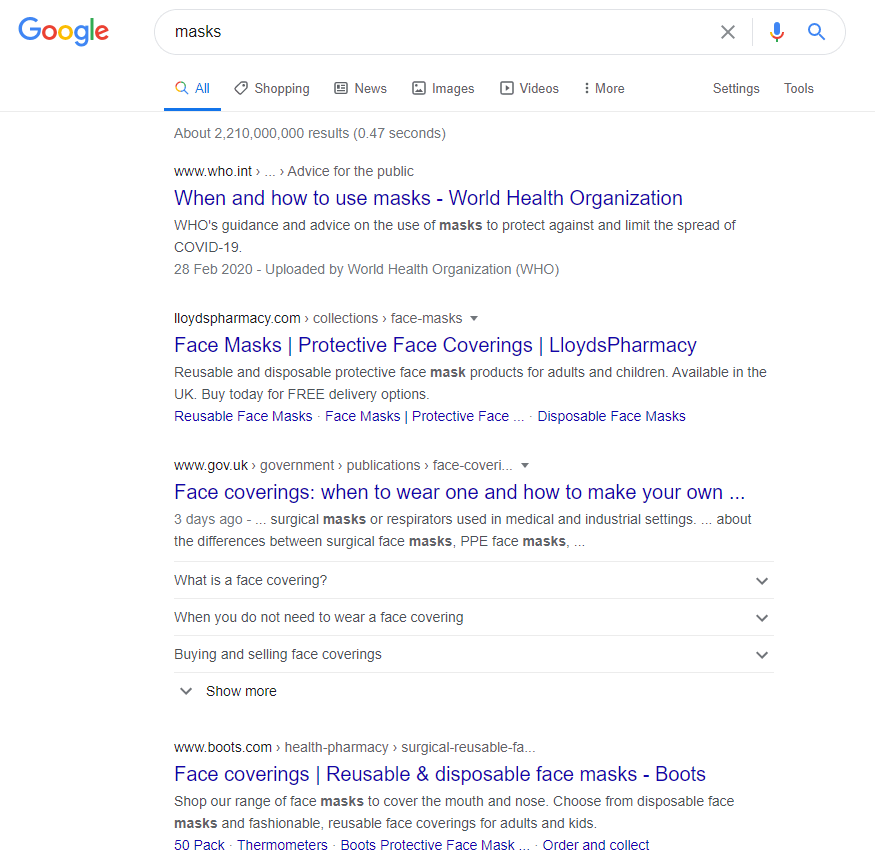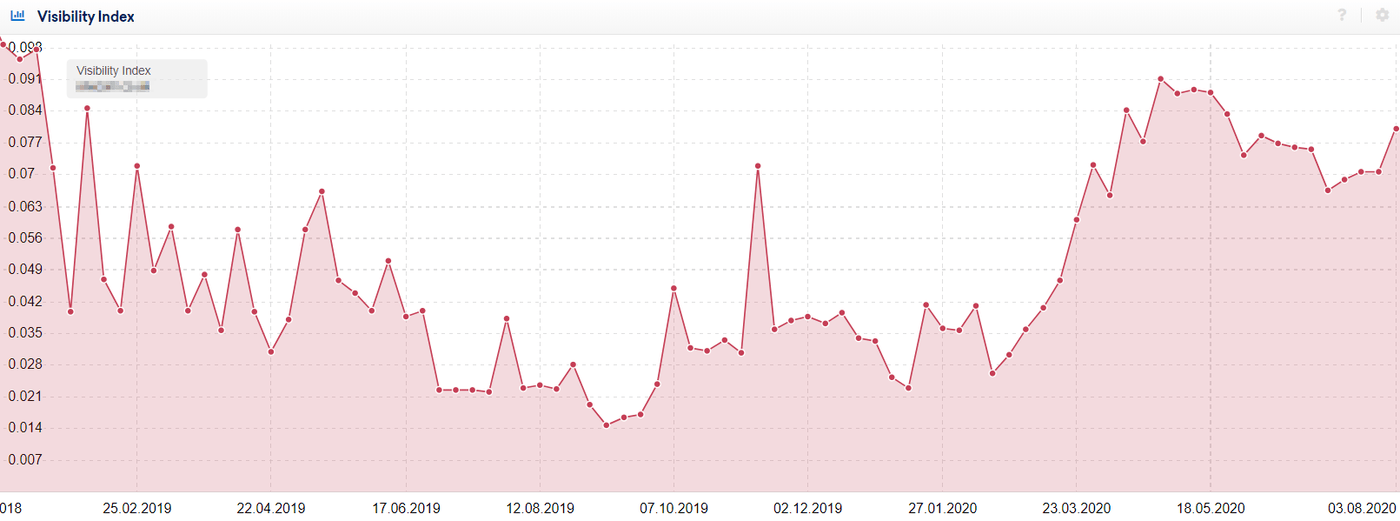What Are SEO Rankings?
Your SEO rankings are the positions of each one the keywords or phrases that your domain appears for in search engines. Your rankings for any given keyword will determine how much traffic you receive from users searching for that keyword, generally, the higher you rank in the results, the more traffic you’ll get, although the number of people clicking on your result will also be influenced by other factors such as;
- The layout of the search results page (e.g. the presence of features like news results or instant answers)
- The content and visuals of your search snippet (e.g. is the title and description enticing, does it contain mark up like pricing or reviews?)
- The presence or absence of paid ads – the amount and content of these ads can influence clicks on organic results
Why Do Rankings Fluctuate?
It is not all that uncommon for rankings to go up as well as down over a period of time. Even following prolonged SEO work, there will be some terms that slip for a time before regaining their position. This can be just a few places or, in more extreme cases, dozens of rankings; so why does this happen?

There are a number of reasons for keyword ranking fluctuation.
Algorithm Tweaks
The most common one, particularly where temporary shifts are concerned, is a reshuffling by the search engines. Search engines are constantly adjusting their algorithms, sometimes this will result in big changes to the search results affecting many sites, sometimes in a particular niche (e.g. The regular Google ‘Core Updates’), but these changes also happen regularly, but at a smaller scale.
When the likes of Google or Yahoo make small changes to their algorithms, some sites may experience sudden drops or gains in their rankings. Over a short period of time these will level out and a stable position will emerge once again.
Competitor Activity
Of course, you can also just lose rankings naturally. If another site has been doing a lot of marketing work which may drive an increase in their amount of backlinks or improvements to the content on their pages, then they can leapfrog your position. With more awareness of SEO and people turning to professional SEO services the top positions (and top few pages in some cases) for almost any head term are becoming highly competitive. Aim to improve the quality of your content, your keyword targeting, the speed at which your pages load and the amount of good quality links pointing at your site, and improved rankings will likely follow.
Manipulative Link Building
A more concerning reason for a major dip in your position could be down to a link profile issue. While it’s really important to attain quality, natural links, If you have been doing anything that contravenes Google’s guidelines around link schemes, then you could find yourself with an algorithmic or manual penalty. This might include any of the following;
- Paying for links
- Using ‘exact match’ anchor text at scale
- Participating guest posting
Diagnosing a link-related drop in rankings can be tricky – sites that have maintained a link profile that includes spam over a long period of time could suffer at any point. Since the Penguin series of updates, Google are now reportedly better at ‘ignoring’ poor quality links, but this doesn’t mean you don’t need to check your backlink profile regularly. Anything you consider to be unnatural or manipulative should be removed or disavowed.
Technical SEO Issues
If Search Engines can’t access, crawl, render or index the content on your pages, they may lose rankings, or drop out of the index altogether.
If you have seen sudden or large drops in rankings affecting one page, technical issues can often be the cause. Carry out wide-scale technical checks to ensure that the affected pages are crawlable, indexable, and render properly, if not, this could be the cause of your ranking decrease.
Changes to Searcher Intent
Whether or not you class it as an algorithmic change or not, perceived changes in searcher intent can drastically alter the search results, causing ranking drops for some pages.
Consider the term ‘masks’; pre-covid 19 it’s likely that the intent behind this term would have been people searching for fancy dress equipment, but today, the results for that term is dominated by sites selling or offering information on face coverings designed to stop the spread of coronavirus.

A Better Approach to Assessing Rankings
We get it. You take pride in rankings for ‘glamour keywords’ and while it’s true that better rankings do generally result in more traffic, looking at a snapshot of your rankings at a single point in time for one or a few keywords isn’t necessarily the best performance indicator.
An alternative is to look at your visibility; there are many different tools that offer a visibility metric including Search Metrics, Sistrix, and SEO Monitor. The ‘visibility’ metric is calculated in different ways by each tool, but the advantage of it is that it aggregates all of your keyword rankings (as well as the search volume of each keyword) to give you one score which might update daily, weekly, or monthly.
This allows you to see on a large scale, your overall ‘keyword ranking performance’ across a set of target keywords you decide on, or across all of the keywords you rank for (as long as they’re tracked by your tool of choice).

Example of a visibility graphVisibility does have it’s limitations, however – your visibility may see big drops off the back of a decrease in rankings for a keyword that isn’t particularly relevant to your brand.
‘Average rank’ from Google Search Console is another metric you may want to pay attention to, this also has it’s limitations – one of the main ones being that if you’re ranking for a higher number of keywords over time, this will likely drag down your average rank.
No single metric is a panacea – it’s important to look at everything together to judge your performance. Rankings are very important, but not just for single keywords at single points in time – instead look at groups of keywords or page (or directory) level visibility across a substantial period of time.
The post Why Do Organic Rankings Fluctuate? appeared first on Koozai.com
About us and this blog
We are a digital marketing company with a focus on helping our customers achieve great results across several key areas.
Request a free quote
We offer professional SEO services that help websites increase their organic search score drastically in order to compete for the highest rankings even when it comes to highly competitive keywords.
Subscribe to our newsletter!
More from our blog
See all postsRecent Posts
- Web Hosting September 26, 2023
- Affiliate Management September 26, 2023
- Online Presence Analysis September 26, 2023

